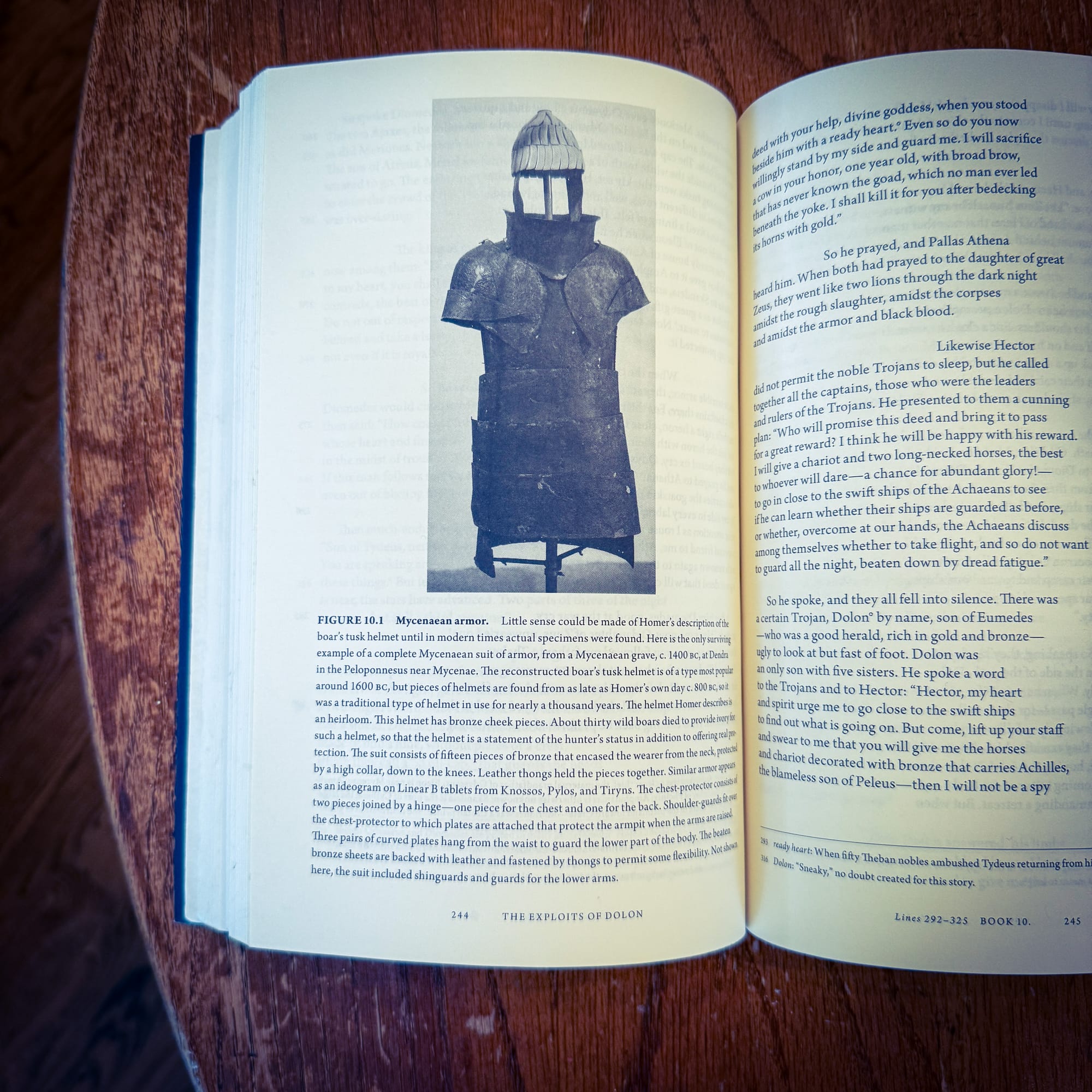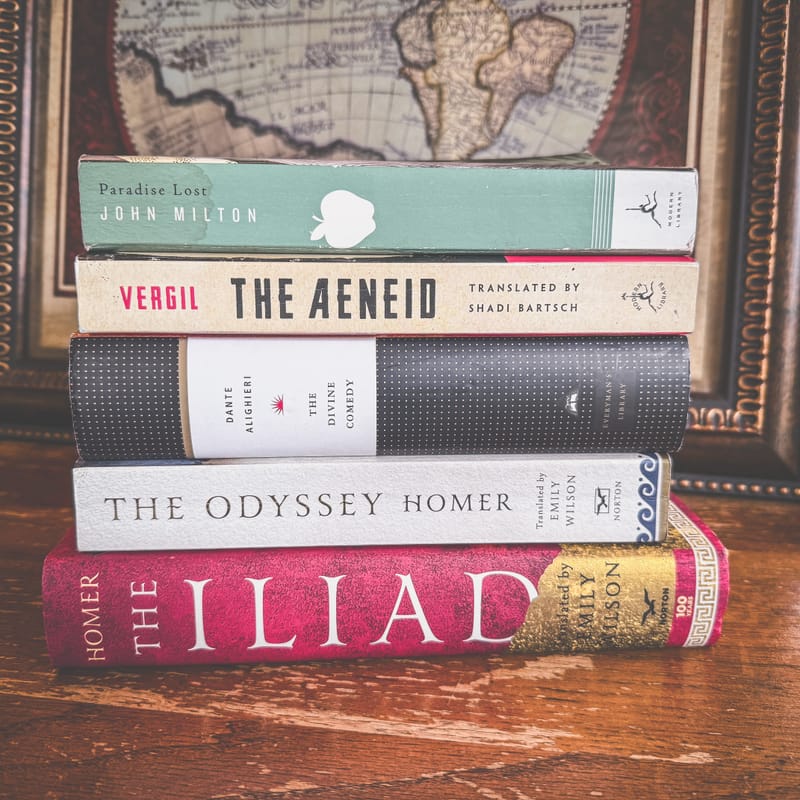Before I even started this project, I had already picked up two translations from my local used bookstore: the Penguin edition translated by Robert Fagles, and the Oxford World’s Classics edition translated by Anthony Verity. I also had an old CD audiobook of The Iliad, given to me years ago, narrated by Stanley Lombardo.
By the time I was done, my shelf looked more like a shrine. Multiple translations. One war.
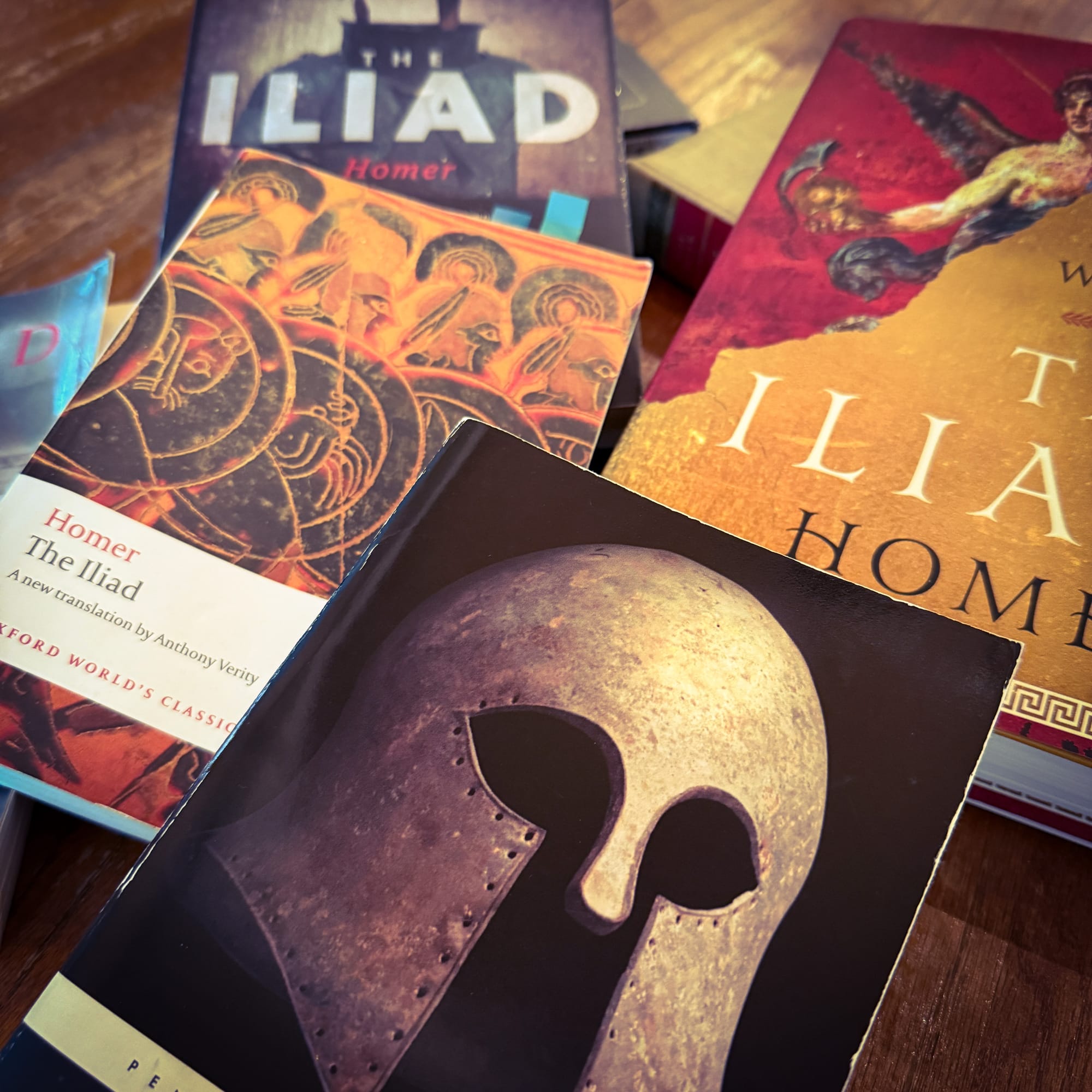
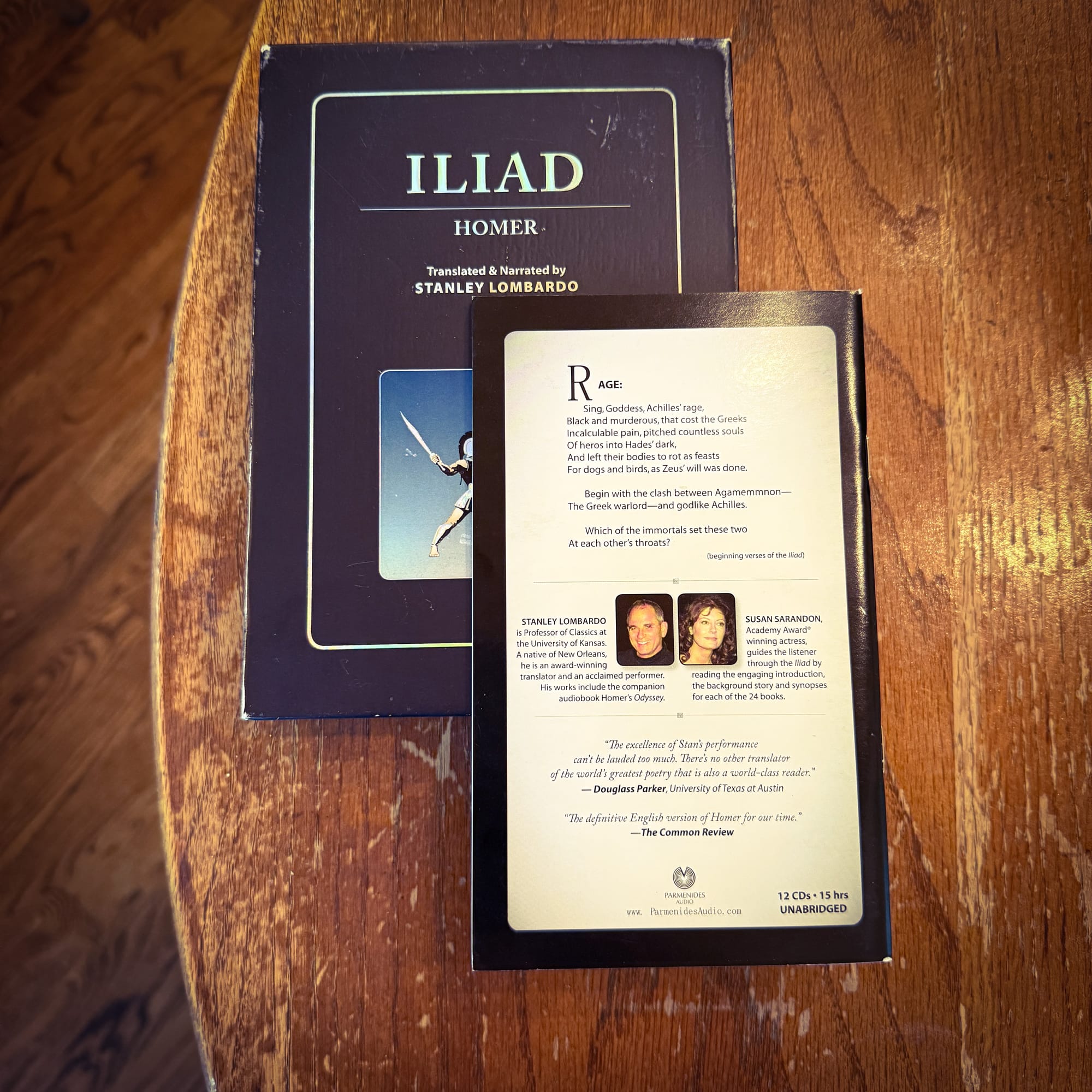
If you’re curious how I choose a translation, I wrote about it here: How to Choose a Translation That Works for You. My method isn’t academic. It’s instinctual. I go with the one I want to keep reading.
In this case, that was Anthony Verity’s translation for Oxford World’s Classics. Something about it just felt right. I’ve always had a soft spot for Oxford editions anyway. Clean design. Serious tone. Great notes.
But beyond the vibe, I ended up loving Verity’s approach. The Greek line numbers were preserved and the epithets (those classic, repeated phrases) hit just the right rhythm. The repetition wasn’t filler. It was form. And it carried the poem like a tide.
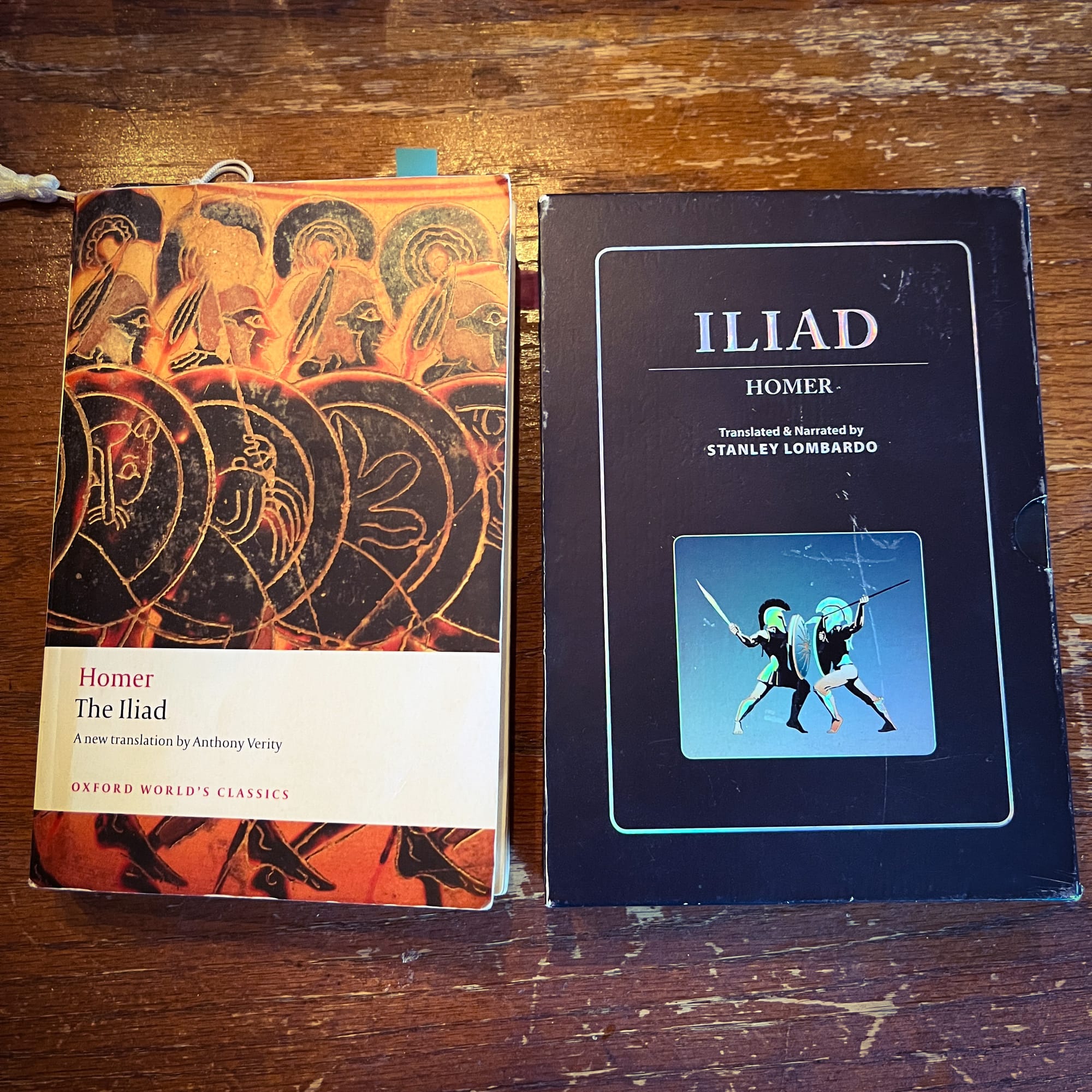
After finishing each book (for example, Book 1), I would switch over to Stanley Lombardo’s audio version and listen to that same section. Lombardo reads it himself, with a delivery that’s both fierce and alive. He captures the tone of each character and channels emotions like rage and pride with a vivid intensity. Apollo descending “like night” in Book 1? Actual chills.
Each book begins with a short introduction, read by Susan Sarandon, layered over atmospheric music that somehow nails the tone. And whenever an epic simile appears, there’s a shimmer of sound. It is subtle, but intentional. It quietly lifts the moment, and if you are doing something else while listening, your brain pays attention.
Reading a book in print and then listening to the corresponding section on audio brought the story alive in different ways. It helped me pick up on things I might have missed the first time. Eventually I got the Stanley Lombardo version on Audible (because who has access to a CD player these days when out and about). I didn’t listen to Lombardo all the way through, but the parts I did hear made the story feel even very vivid.
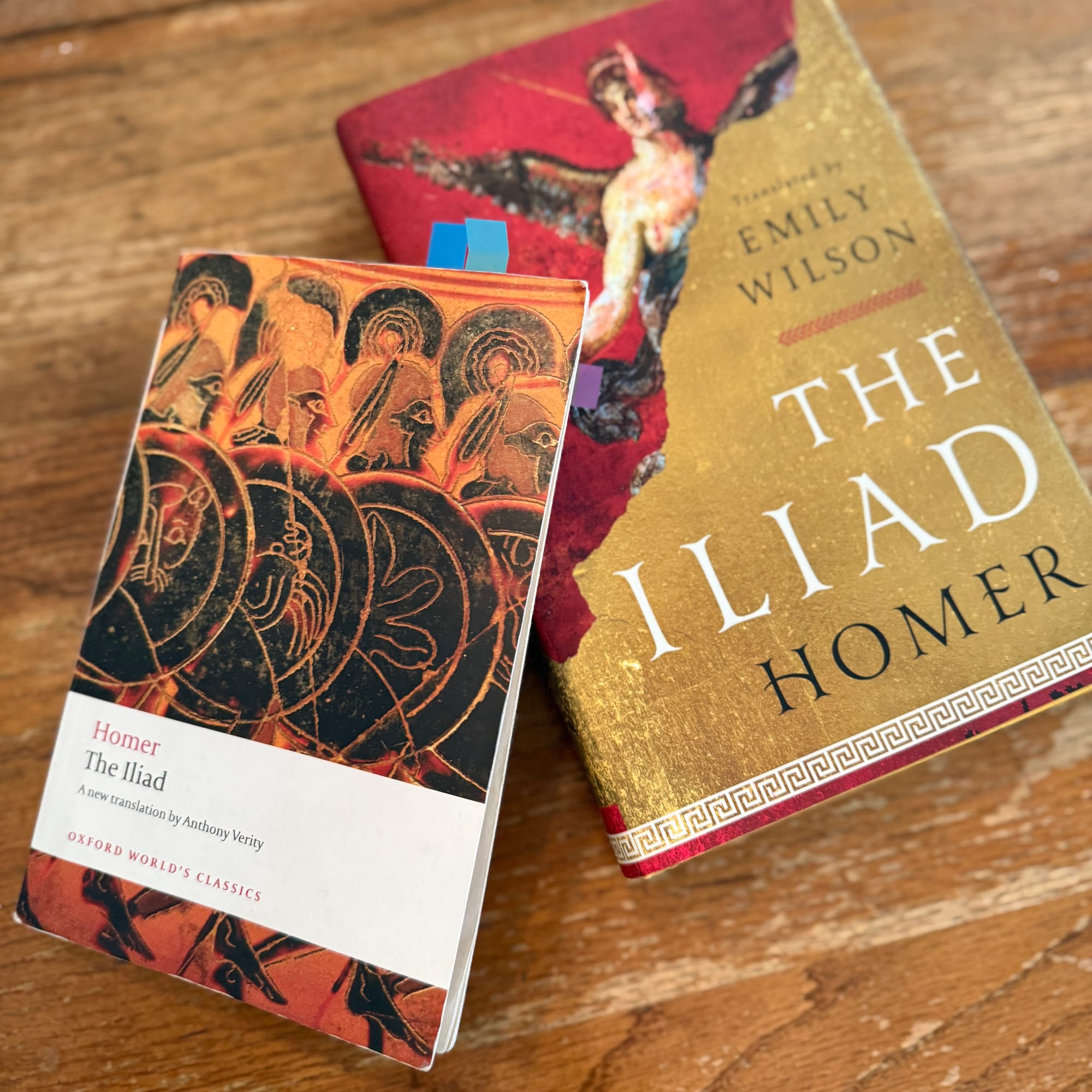
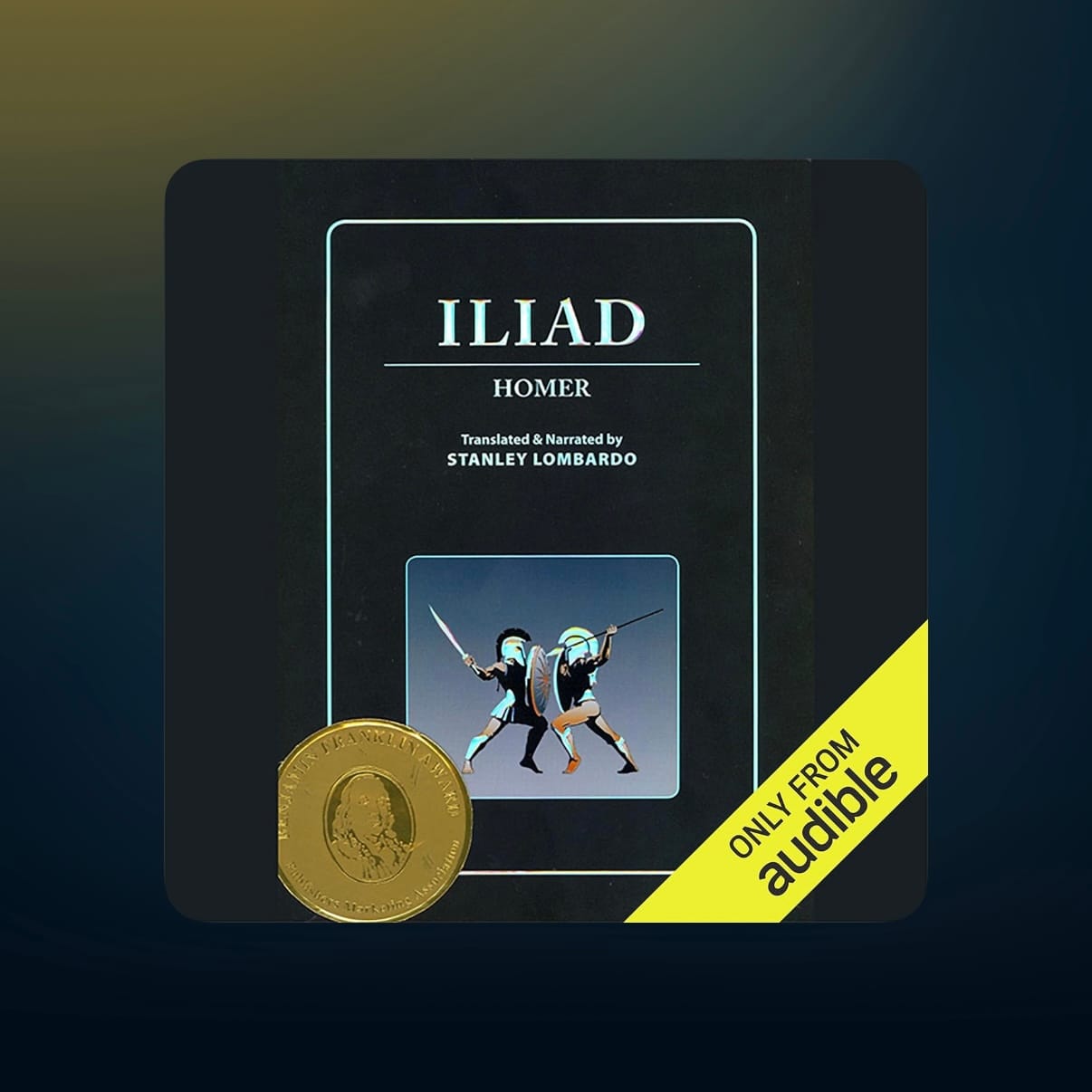
I kept seeing this new translation by Emily Wilson. One day at the bookstore, I saw it yet again. Captivated by the book itself, by its feel, weight, layout, maps and notes, and by the way her translation flowed quickly and clearly, I decided to treat myself and got it.
I simply switched translations and started at Book 15, picking up where I had left off in Anthony Verity’s version.
I tell you this so you can know it is totally fine to switch up translation and experience the text in different ways. When you read, do it your way.
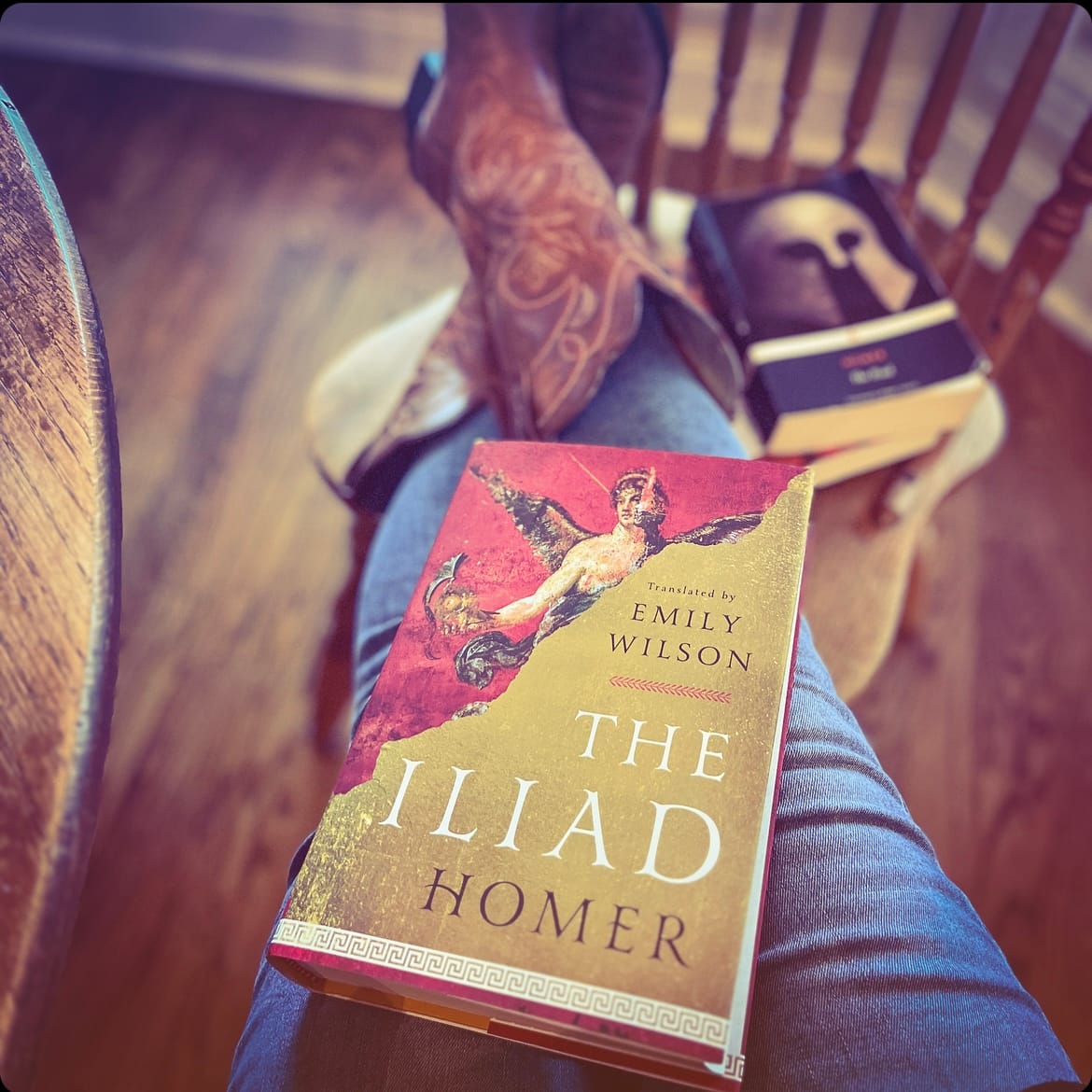
As an experiment, I later tried the Emily Wilson audiobook, narrated by Audra McDonald. She did a beautiful job, but I found that Lombardo’s voice carried a different kind of weight. I think this story lends itself to a male narrator.
I now own six different translations and plan to read each one over time. One of them was a gift from a friend that had belonged to her father. She gave it to me after he passed away, and it has become a treasured part of my shelf. I want to return to The Iliad again and again, letting each translation offer a new experience.
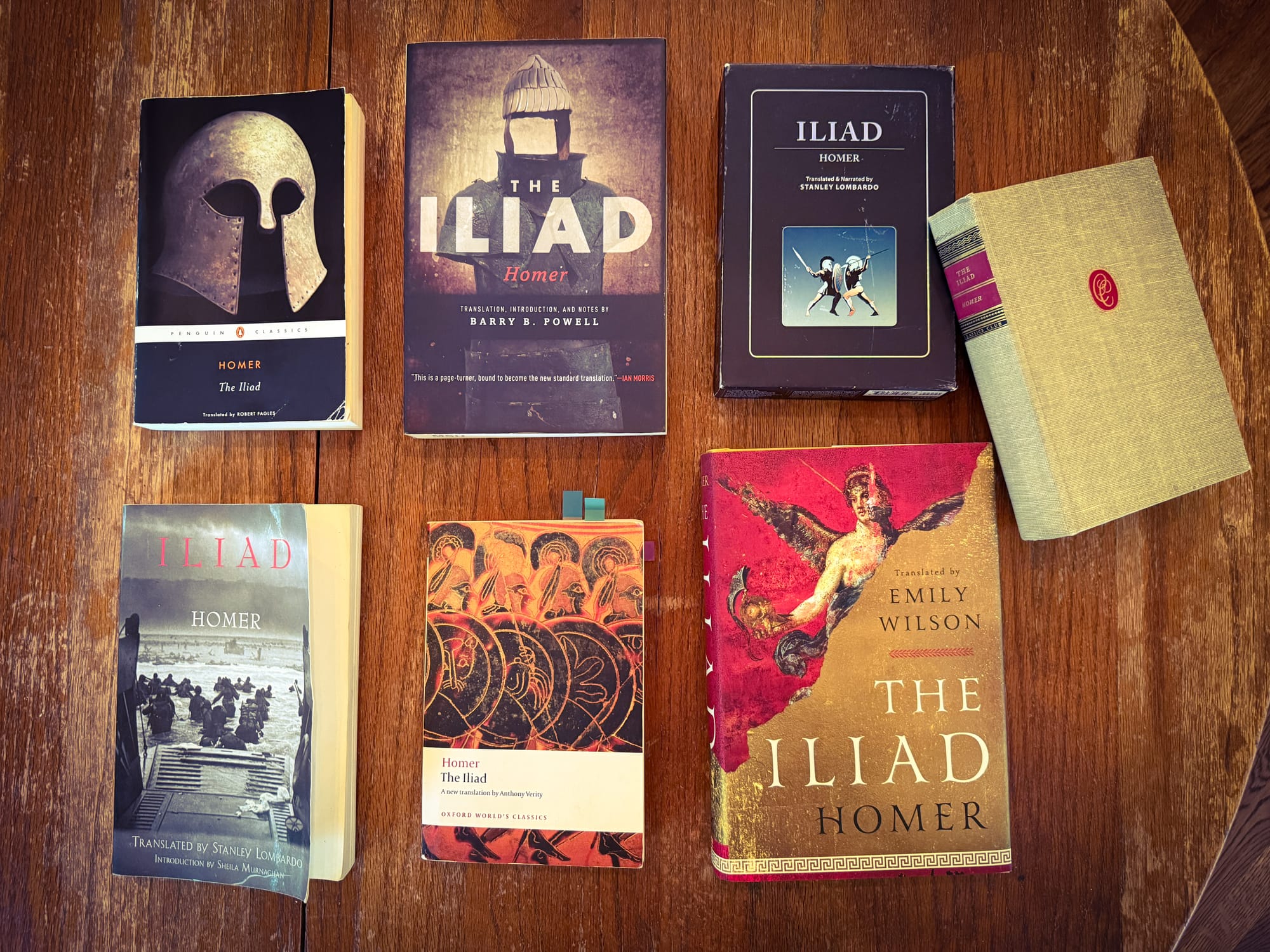
VERDICT?

